A listening ear just a phone call away
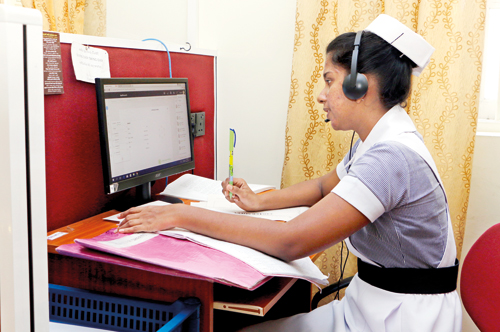
A nurse ‘womaning’ the helpline. Pix by Priyanka Samaraweera
Ensconced within the National Institute of Mental Health (NIMH) in Angoda, a small, cosy and quiet room is acting as the nerve-centre for anyone from anywhere in the country to “unburden” themselves.
Speaking softly and gently into two phones are two nurses wearing headsets, fielding the calls from across the country and providing solid support. A bell clangs across the NIMH, announcing the mid-morning tea-time but the nurses will not budge from their station.
Another nurse is at a desk close-by to step in if the need arises and a doctor sits at the supervisory desk able to listen in on the troubles and worries flowing from outside, able to intervene if there is a necessity.
This is the toll-free National Mental Health Helpline 1926 dedicated to all those out there who may need an ear to vent their feelings. However, the tale does not end there. They will be guided to the relevant services for help and in some circumstances, a mental health team will even respond by making a home-visit.
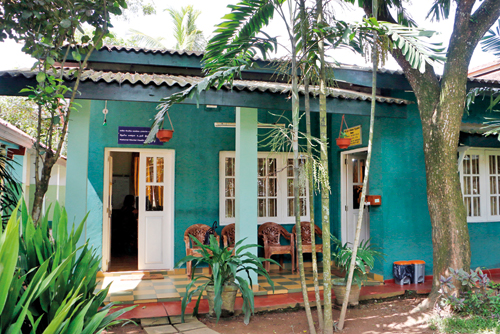
A quiet place that provides a great service
A month before the National Mental Health Helpline celebrates its first anniversary, it has received 9,000 calls so far.
Looking closely at all those calls, 30-40 received daily, the analysis shows the ‘peaks’ to be between 9 a.m. to 12 noon and to a lesser extent 2-5 p.m. The night calls are mostly from people who are having suicidal ideations (thoughts of ending life), facing domestic violence and those managing a restless mentally-ill patient. The early morning calls are usually from adolescents about relationship issues and sexual health-related queries.
The importance of this helpline, established in October last year, is obvious when we step into the office of the NIMH Director Dr. Kapila Wickramanayake with the Team Leader of the National Mental Health Helpline & Gender-based Violence Prevention Unit, Dr. Pushpa Ranasinghe. Immediately, the conversation turns to the helpline, with all three including Chief Matron Sandya Pathmarani focusing on training more nurses to ‘woman’ the telephones.
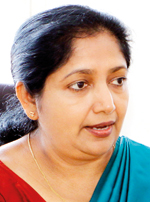
Dr. Rana-singhe
The dire need for such a helpline was vindicated when there was a sharp rise in the beeping of the phones soon after the Easter Sunday bomb attack in April.
“As we celebrate one year of service on the 15th of next month, we know that we have done the right thing by setting up this helpline,” says Consultant Psychiatrist Dr. Ranasinghe, thinking long-term how to strengthen the service with more computers, head-sets and training of more nurses. She is happy that as they keep training nurses and some of them go out on transfer, they would be attuned to the mental health needs of vulnerable men, women and children elsewhere.
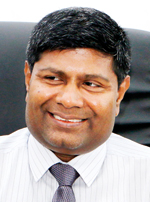
Dr.Wickramanayake
Before delving into the service being provided by the National Mental Health Helpline, Dr. Ranasinghe answers the query: What prompted the initiation of the helpline?
It was in response to the many enquiries they received at the Outpatients Department (OPD) and by the telephone operators of the NIMH about patient services including hospital admission, dealing with a restless patient or a side-effect to a medication that they felt a need to set it up, she says, pointing out that people did not have anyone to turn to.
These people felt desperately alone – most such things happened in the night, after working hours of state hospitals and they could not afford to go to the private sector, explains Dr. Ranasinghe. “They did not know whom to talk to and, in turn, became anxious.”
Picking up the concept of the National Mental Health Helpline, she reiterates that it is not limited to information on serious mental health illnesses, but deals with any and every issue. These issues could vary from fear of examinations to a worry about a cheating partner, from cyber crime to domestic violence.
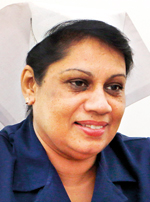
Ms Pathmarani
“We listen, give them assistance and also direct them to services, sometimes even calling the services ourselves,” says Dr. Ranasinghe.
In case there is an emergency, like a very dangerous domestic violence incident, we alert Police Emergency and they respond immediately, she adds.
All calls to the helpline are listed and kept on record for six months, with complicated cases being provided the necessary interventions immediately. Dr. Ranasinghe’s team also re-visits the calls to check-out whether they could have been handled differently, for this is a continuous learning process, it is learnt.
“Confidentiality is ensured,” she assures, with access to records being restricted.
So far, 120 nurses and five doctors have undergone training in both counselling and phone-counselling with the Consultant Psychiatrists including Dr. Ranasinghe always contactable even at night.
| Dealing with the Easter tragedy | |
| A flood of calls inundated the helpline after the tragic Easter Sunday bomb blasts of April 21 when several churches and hotels were affected and many people died or were injured.Soon after, 80 doctors and nurses trained in providing Psychological First Aid got onto the field with 40 being deployed at the National Hospital of Sri Lanka (NHSL) and others visiting homes. |
| What the calls are about | |
| 1926–this is the number to call if you are in distress, need to know about a service or are desperate to be linked to a service.This 24-hour National Mental Health Helpline is toll-free and operated in all the three languages of Sinhala, Tamil and English.Forty-eight percent of the calls it has received are due to relationship (including break-ups) and domestic issues, 20% are for service information and the balance for emotional support, queries on medical side-effects, anxieties and social phobia, it is learnt. Those topping the list include:
“We give them an appointment to visit the NIMH’s Day Care Centre. If, however, they are living far away, then we make arrangements for them to meet the mental health team in their area,” says Dr. Ranasinghe, adding that they “connect” them so that even a home-visit may be arranged.
In such cases, if the patient has been taking previous treatment from the NIMH, the Colombo outreach ambulance service will be notified, with the patient’s relatives being informed to make a request to the NIMH Director to avail themselves of this service. All Consultant Psychiatrists of the NIMH have a ‘catchment area’ and he/she will be informed of the need. Then his/her team will contact the patient’s family and make a home-visit or make arrangements to bring the patient to hospital, sometimes with the assistance of the police.
“We listen carefully, analyze the problem and give a problem-solving option,” says Dr. Ranasinghe, explaining that if the person who is causing the issues has a mental illness (such as morbid jealousy), an intervention would be arranged with the area’s mental health team. If there is a dangerous situation, then Police Emergency 119 will be called, while the mental health team will also intervene. If it is an ongoing problem and the victim needs legal advice, a protection order, a separation or divorce order or alimony, they will link them up with non-governmental organizations such as Women in Need (WIN) or the Legal Aid Commission which has a branch in every court. If they first come to us, then we do an assessment and refer them to these NGOs with our suggestions, says Dr. Ranasinghe. It is easier if the couple is directed by court to attend counselling or a mental health clinic, as this makes it legally binding to seek treatment, she adds.
|


